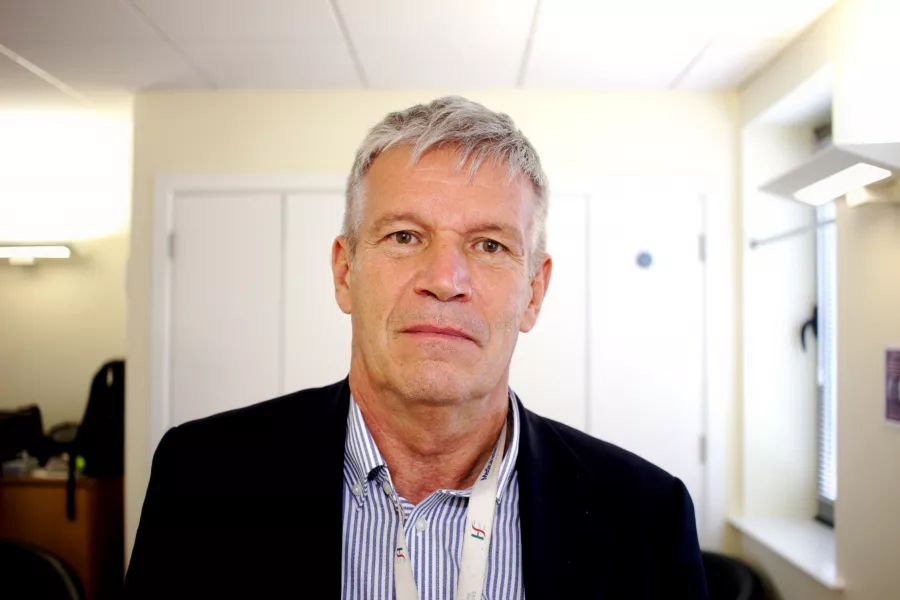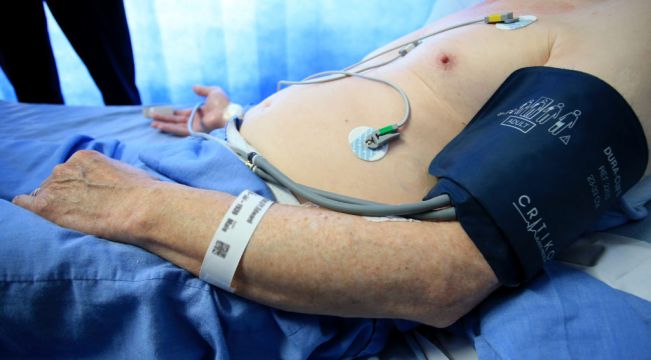Up to 20,000 people in Ireland may have the silent disease hepatitis C – as the State’s target to eliminate the curable virus lags 21 years behind schedule, according to campaigners.
Ireland faces an uphill battle to overcome the disease by 2030 due to a “lost cohort” of cases, a top professor has warned.
Hepatitis C is a viral infection which causes inflammation of the liver and is a major cause of cirrhosis and liver cancer.
It is spread through contact with the blood of an infected person and, left undiscovered, can shorten life expectancy by up to 15 years.

It is usually associated with drug use, but can also be contracted through tattoos, infected blood products, snorting narcotics and sexual activity.
Wednesday is World Hepatitis Day and campaigners warn that with around 600 to 700 new hep C diagnosis annually, Ireland is two decades off elimination targets.
This, they warn, is due to limited availability of treatment for those outside specialist addiction services.
The number being treated has fallen by two-thirds – from 354 in the first three months of 2019 to just 110 in the first quarter of this year.
Prof Jack Lambert, consultant in infectious diseases and genitourinary medicine at Dublin’s Mater Hospital and UCD, said: “At the moment, we have probably had as many, if not more, new infections in the past five years as we have treated.
“In 2020, we treated approximately 550 people and less than 100 of those in the wider community setting. We have to rethink how we can reach our target of treating 1,500 people per year to eliminate hepatitis C by 2030.
“People on methadone are being identified all the time, but people who may previously have been drug users but are no longer engaged in care may be part of the silent epidemic of those lost to follow up.
“We now have a lost cohort of hepatitis C sufferers. Everyone should have a hep C test once in their lifetime, probably during their forties, as is the case in the US.”
Prof Lambert insists health authorities must now target other cohorts for screening, including those who may have developed hep C from sexual contact, tattoos and non-intravenous drug use.
The infection of large numbers of people from eastern Europe with tainted blood products following the fall of the Soviet Union, and now living in Ireland, is also a contributing factor to rising cases.
Kristy Hayes, head of advocacy with the Hep C Partnership, said: “The scandal is that our neighbours in the UK can have someone tested and beginning treatment within an hour.
“We are nowhere near that in the community and there are only a handful of GPs prescribing in the community.
“There are clear guidelines from the World Health Organisation in relation to community treatment but that model of care is not happening in Ireland. Sadly, we are not among the 11 countries worldwide on track meet elimination targets by 2030.
“We need to link GPs in with hospital pharmacies so that we can increasingly treat people in the community.”
Increased alcohol consumption during lockdown among those unaware they had the infection has also led to more patients presenting with advanced liver disease.
Diagnosis of the virus – one of the few curable viruses in the world – is through a PCR test and treatment is via oral medication for eight to 12 weeks.
Limerick-based GP and academic Dr Patrick O’Donnell says testing and treatment of hep C needs to be “normalised”.
“We are very good at identifying and treating people who are also attending methadone treatment centres or linked into care,” he said.
“However, if I have a patient who is not on methadone, I must refer them for treatment in Cork, Dublin or Galway, and the reality is that more than half of them don’t make it for the three to four visits needed.”
One person fully cured through new treatment in 2017 after being diagnosed with the virus a decade ago says it remains grossly misunderstood in Ireland.
Sophie (no surname provided), 53, a project worker in the healthcare service, is convinced she contracted it after getting two tattoos in her 20s and believes she would have died had she not received treatment.
The north Dublin woman said: “There are people who have never touched drugs who have hepatitis C and they’re put through a huge amount of stigmatisation.
“Sometimes it feels worse than having a criminal history, the minute hep C is mentioned, you are judged.”
Sophie believes the State needs to do more to challenge stigma.

“One of the biggest issues I see is that many professionals in the area think it’s only a problem involving drug use and that if they treat people with drug addiction, the problem will magically go away,” she added.
“As long as that attitude remains, they are not going to eradicate it in Ireland because hep C is in the general population.”
Her infection was detected during a routine blood test and treatment, involving regular liver checks and daily, oral medication for three months, followed.







